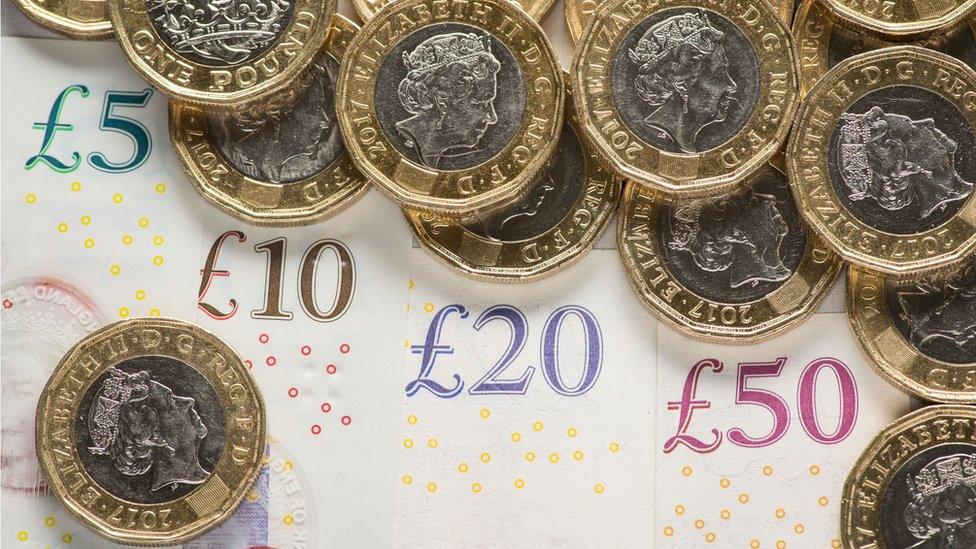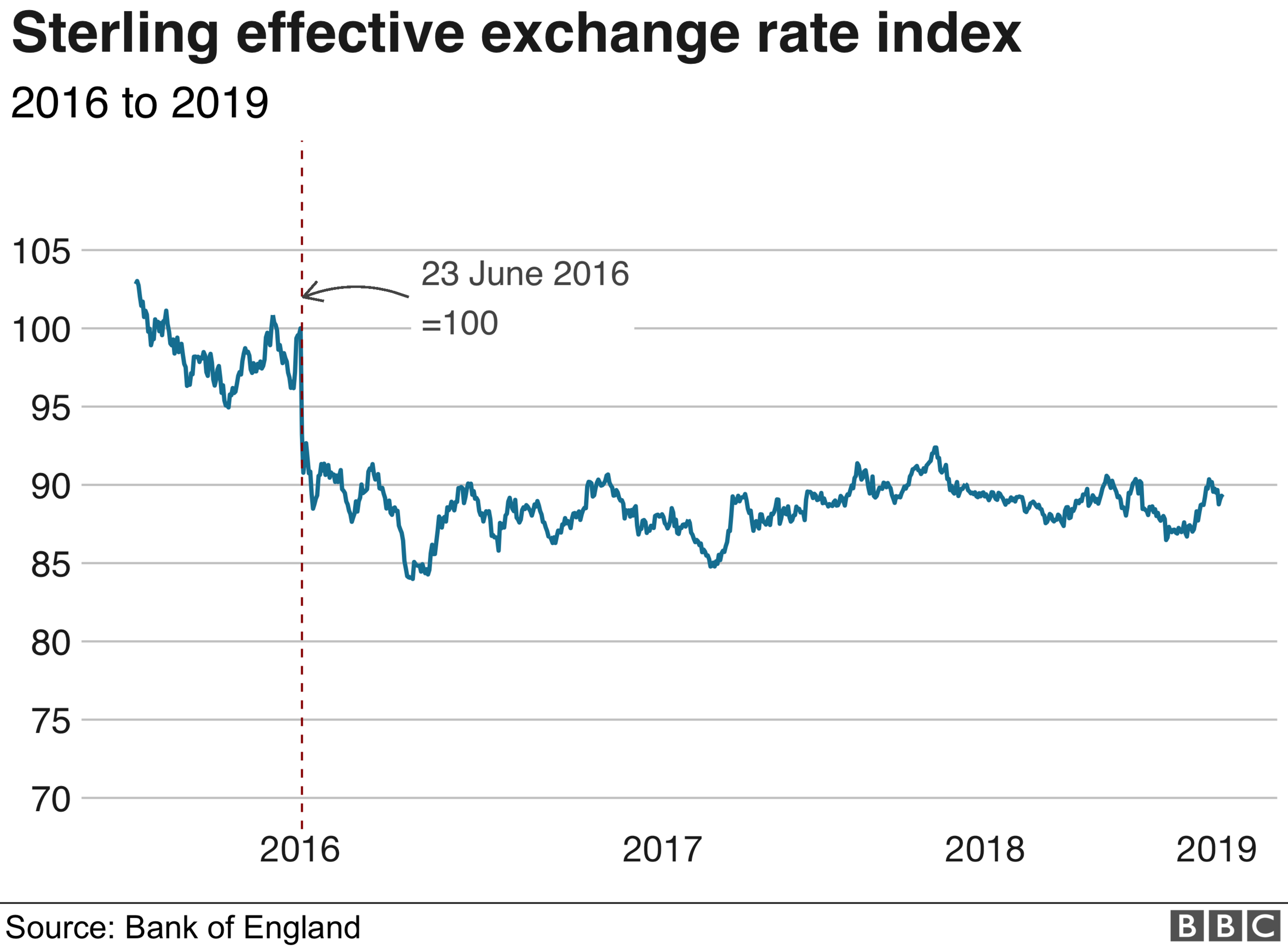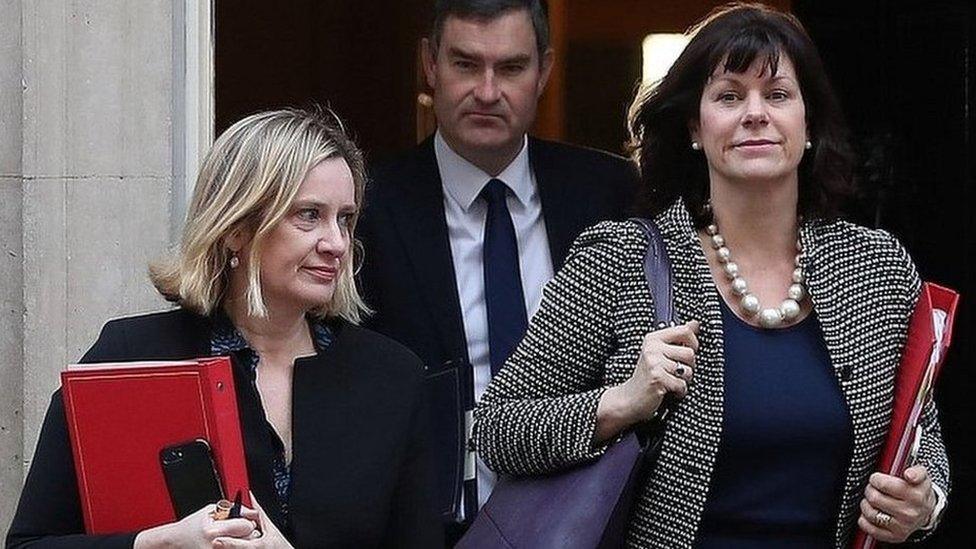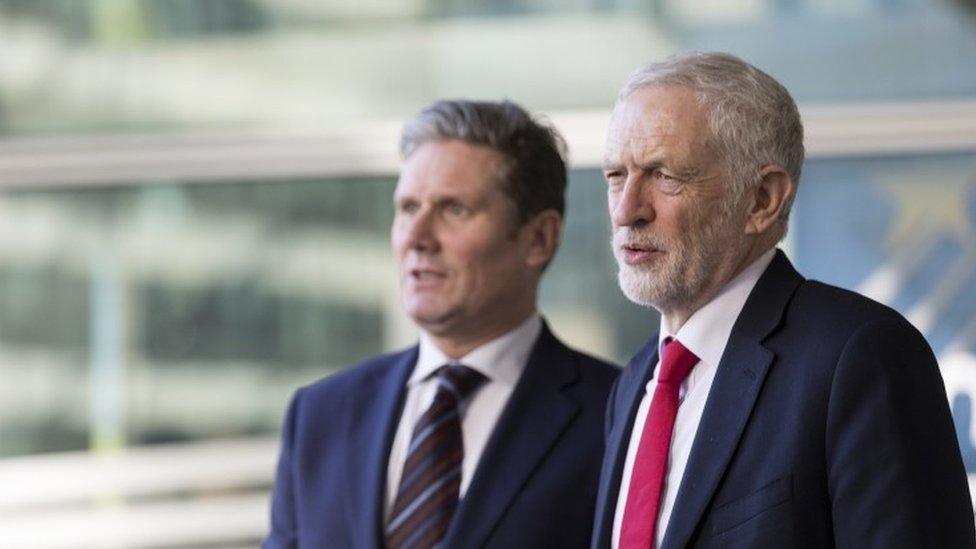Pound rises amid Brexit delay speculation
- Published
- comments

The pound has hit a 21-month high against the euro, following increased speculation about a delay to Brexit.
Prime Minister Theresa May said in the Commons that if no deal was agreed and if a no-deal exit was rejected, then there could be a short extension to the date for Britain to leave the EU.
At one point, sterling hit €1.1643, its highest level since May 2017.
However, Mrs May's concession was not as wide-ranging as investors had hoped, causing sterling to dip again.
Pound v euro
Against the US dollar, it reached $1.3239 at one point, its highest level since the end of January, before starting to lose ground.
Pound v dollar
Analyst Jane Foley at Rabobank said Mrs May's remarks in the Commons had been "discouraging for investors", giving the impression that even if Brexit were delayed, "the cliff-edge could be even sharper in three months' time".
"The markets have not particularly liked what they've heard," she said.
However, she added that there was still a consensus among investors that a no-deal Brexit would be avoided, because "neither Parliament, the electorate or Europe want it".
The value of the pound fell sharply in the aftermath of the Brexit referendum result in 2016.

On Tuesday, Bank of England governor Mark Carney told MPs on the Treasury Committee that the Bank would provide more support for the economy in the event of a no-deal Brexit.
He said the Bank's Monetary Policy Committee had emphasised that its response to the shock of a no-deal Brexit would depend on the economic situation.
"Given the exceptional circumstance associated with Brexit, I would expect the committee to provide whatever monetary support it can consistent with the price stability remit given to the committee by Parliament. But there are clearly limits to its ability to do so," he said.
He also warned that interest rates might have limited scope to support any damage to activity or jobs in event of a no-deal scenario, as they may have to rise instead to curb inflationary pressures.
He added that if Britain left the EU with no deal, "I guarantee you the path of GDP in our forecast will be materially lower than it is in our February forecast, which assumes that there is a deal and there is a smooth transition".
- Published26 February 2019

- Published26 February 2019
